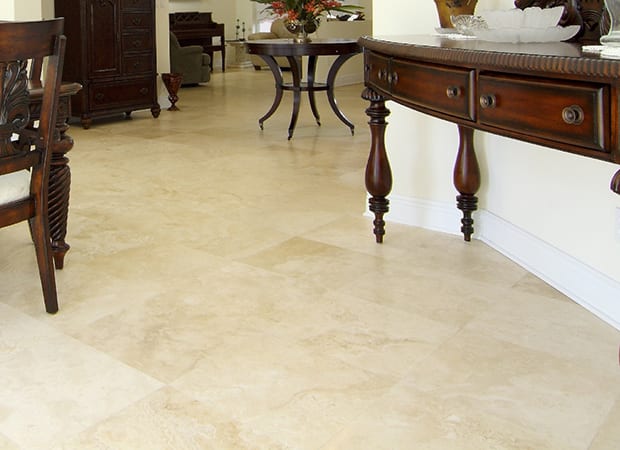Maintaining natural stone flooring is essential to preserve its beauty and longevity. Different types of natural stone, such as marble, granite, limestone, travertine, and slate, may require slightly different maintenance approaches, but here is a general guide to help you care for your natural stone floors:
Regular Cleaning:
- Sweep or vacuum the floor regularly to remove dust, dirt, and debris. Abrasive particles can scratch the stone's surface over time.
- Use a soft-bristle or microfiber mop to dry or damp mop the floor. Avoid using excessive water, as it can penetrate the stone and cause damage.
- For damp mopping, use a pH-balanced stone cleaner or a mild dish soap mixed with warm water. Do not use acidic or abrasive cleaners, as they can etch the stone's surface.
Spill Cleanup:
- Clean up spills immediately to prevent staining. Blot the spill with a clean, dry cloth, and then clean the area with a stone-safe cleaner.
Sealing:
- Most natural stone floors benefit from periodic sealing to protect against stains and moisture. The frequency of sealing depends on the type of stone, usage, and the sealer used.
- Test the stone's porosity by dropping a few water droplets onto the surface. If the water is absorbed quickly, it's time to reseal.
Avoid Harsh Chemicals:
- Avoid using acidic or abrasive cleaners, such as vinegar, lemon juice, or ammonia, as they can damage the stone's surface.
- Never use abrasive scrubbing pads or steel wool on natural stone, as they can scratch the surface.
Use Doormats and Rugs:
- Place doormats at entrances to minimize the amount of dirt and grit tracked onto the stone floor.
- Use rugs or mats in high-traffic areas to protect the stone from wear and tear.
Furniture Pads:
- Place protective felt pads or coasters under the legs of furniture to prevent scratches and scuffs when moving or rearranging.
Handle Heavy Objects Carefully:
- When moving heavy furniture or objects, lift them instead of dragging them across the floor to prevent damage.
Regular Inspections:
- Periodically inspect the floor for any signs of damage, including cracks or loose tiles. Address any issues promptly to prevent further deterioration.
Professional Maintenance:
- Consider hiring a professional stone restoration specialist for deep cleaning, polishing, and resealing as needed, especially for high-traffic areas.
Temperature Control:
- Maintain a stable indoor temperature and humidity level, as extreme fluctuations can affect natural stone over time.
Remember that the specific care and maintenance requirements may vary depending on the type of natural stone you have. It's always a good idea to consult with the manufacturer's recommendations or seek advice from a professional if you are unsure about the best practices for your particular stone flooring.








